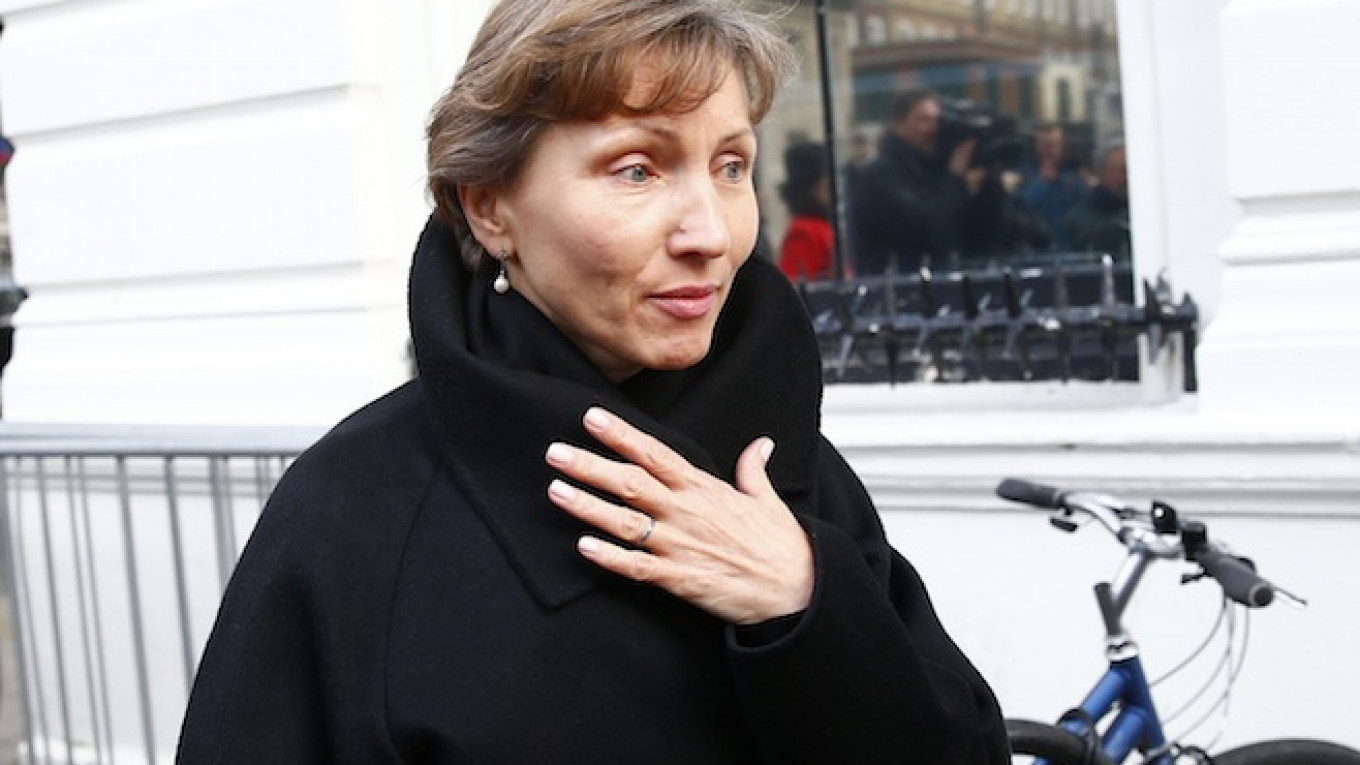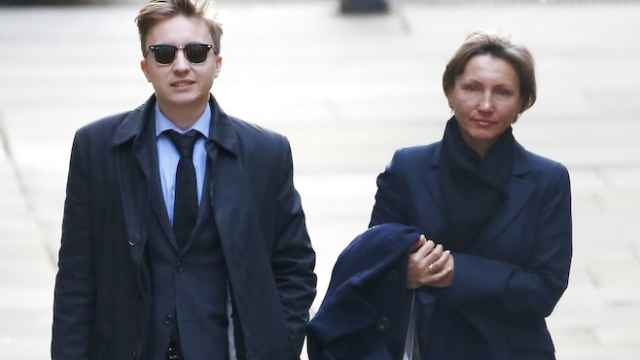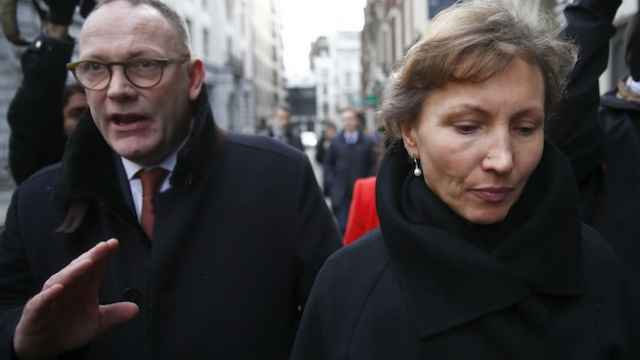Alexander Litvinenko, a former Russian agent killed with polonium in London, believed President Vladimir Putin lacked the mettle to stamp out corruption inside Russia's security agency and that he had links to organized crime, his widow has said.
Giving evidence to a public inquiry at London's High Court into his death, Marina Litvinenko said Monday that her husband had taken his concerns in 1998 to Putin, who then headed the Federal Security Service (FSB), the main successor to the Soviet-era KGB.
Marina Litvinenko said Putin, who on Dec. 31, 1999, would become Russia's acting president, had done nothing and that shortly after raising his concerns, Litvinenko himself, known to his family as Sasha, had come under investigation.
"Sasha said it was not a productive meeting at all because he didn't believe his [Putin's] professional skills, he didn't believe he could make any change," she said.
Litvinenko, who served in the KGB and then the FSB unit dealing with organized crime, doubted Putin's ability because he had become FSB director without doing work "on the ground," added the 52-year-old widow.
Litvinenko died aged 43 in 2006 after drinking tea poisoned with rare radioactive isotope polonium-210, which British police believe he was given by two Russians. The main suspects, Andrei Lugovoi and Dmitry Kovtun, deny involvement and Russia has refused to extradite them to face trial.
The inquiry, which opened last week, has also heard that Litvinenko had told police that Putin, who served as a KGB spy in East Germany, ordered his killing. The Kremlin has repeatedly dismissed the accusation as nonsense.
According to his widow, Litvinenko had also suspected Putin, who became first deputy mayor of St. Petersburg in 1994, of providing patronage to the criminal gangs in the city which mushroomed as the Soviet Union collapsed in 1991.
"Sasha believed he was involved in some crime connections," said Marina, adding that Russia's second city was the crime capital of Russia at that time.
Leaked cables show that U.S. diplomats viewed Putin as a leader who ruled by allowing crooked spies and corrupt officials siphon off cash from Russia, the world's biggest energy producer. The Kremlin has dismissed the claims.
Disillusioned
Marina told the inquiry that her husband had first begun to have doubts about the actions of the FSB during the war against Chechen separatists in 1994.
By 1998, he was working for a secret unit of the agency known as URPO, which investigated organized economic crime, and had reached the rank of lieutenant-colonel.
But he became disillusioned over some of its illegal activities and the suggestion that he should kill oligarch Boris Berezovsky, the inquiry heard.
In late 1998, Litvinenko fronted a news conference that Berezovsky had organized with a number of other FSB agents, some masked, to denounce corruption in the FSB.
In 1999 Litvinenko was charged and detained before being cleared of assaulting a suspect. He was immediately re-arrested and accused of theft. This case was dropped but he faced further allegations in early 2000 shortly before he fled Russia on a false Georgian passport, his widow said.
"It was Putin's fault why Sasha was in prison. Sasha said … 'if they [arrest] me, I will never be able to go out from prison, they will kill me'," she said, adding he believed his wife and son would also be in danger.
The family were granted asylum in Britain in May 2001, given new names and gained British citizenship weeks before his death.
"He was very proud to be British," Marina said.
The inquiry heard he was paid 2,000 pounds ($3,000) a month to work for Britain's MI6 foreign spy agency and also for Spain. Marina said his task was to provide information about Russian criminal gangs, not to hand over names of sleeper agents.
Asked if he gave anything to Britain that Moscow might want secret, she said: "If a Russian government [was] connected to organized crime, yes."
A Message from The Moscow Times:
Dear readers,
We are facing unprecedented challenges. Russia's Prosecutor General's Office has designated The Moscow Times as an "undesirable" organization, criminalizing our work and putting our staff at risk of prosecution. This follows our earlier unjust labeling as a "foreign agent."
These actions are direct attempts to silence independent journalism in Russia. The authorities claim our work "discredits the decisions of the Russian leadership." We see things differently: we strive to provide accurate, unbiased reporting on Russia.
We, the journalists of The Moscow Times, refuse to be silenced. But to continue our work, we need your help.
Your support, no matter how small, makes a world of difference. If you can, please support us monthly starting from just $2. It's quick to set up, and every contribution makes a significant impact.
By supporting The Moscow Times, you're defending open, independent journalism in the face of repression. Thank you for standing with us.
Remind me later.






